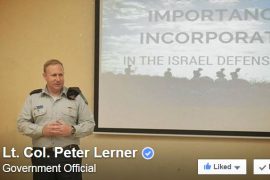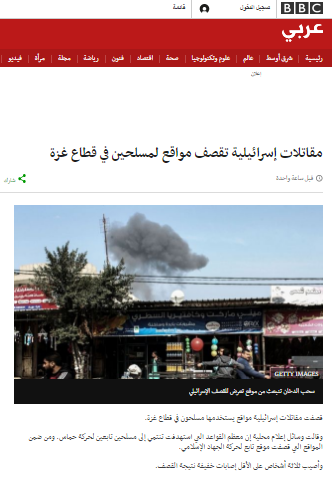1) At the INSS Tomer Fadlon, Sason Hadad and Elisheva Simon discuss ‘Lebanon’s Political-Economic Crisis’.
“The two deep problems weighing on Lebanon’s economy are inter-linked. The first is endemic corruption: the organization Transparency International ranks Lebanon 138 among 175 countries assessed. Corruption in Lebanon is manifested especially in nepotism and budget-inflation to line the pockets of those close to power. Thus, for example, in July 2017 public sector salaries rose by dozens of percentage points, while private sector salaries did not enjoy any increase. The only way to fund the higher salaries and inflated budgets is through taxes on the population, which have ballooned in recent years and burdened the private sector.
The second problem is political instability, which is linked to Lebanon’s community structure and greatly limits the Lebanese government’s freedom of action and ability to implement reforms. The instability makes it hard for the government to meet the public’s basic demands, including sanitation services and electricity supply. As a result, there is a burgeoning market in private generators, though even this phenomenon is arguably linked to corruption: politicians are aligned with the generator suppliers, and thus, in fact, profit from government inaction.”
2) At the JCPA Yoni Ben Menachem takes a look at ‘New Tensions between Egypt and Hamas’.
“In recent days, signs of new tensions between Egypt with Hamas in the Gaza Strip have intensified in light of the recent assassination of Iranian General Qasem Soleimani by the United States.
This new rift was created following a surprise move by Hamas leader Ismail Haniyeh, who decided to take a senior Hamas delegation to Tehran to attend Qasem Soleimani’s funeral. He met and comforted the Iranian leadership and Soleimani’s family.
Qasem Soleimani’s assassination caught Ismail Haniyeh during his visit to Qatar. Haniyeh left the Gaza Strip two weeks ago with special permission from Egyptian authorities. The Egyptian authorities had prevented him from going abroad for the past three years in an attempt to prevent Iranian and Turkish influence that would endanger Egypt’s efforts to calm the Gaza Strip and move towards national reconciliation between Fatah and Hamas.
Egyptian authorities had put conditions on Ismail Haniyeh before his trip, and he pledged to comply. They included a ban on travel to Iran or Lebanon and meetings with Iranian and senior Hizbullah officials.”
3) The ITIC presents an overview of Palestinian terrorism in 2019.
“Two main trends in attacks characterized Palestinian organized and popular terrorism in 2019: in Judea and Samaria, the annual decline in the scope of popular terrorism and its lethality continued; in the Gaza Strip there was a significant rise in the scope and intensity of terrorism and violence, especially rocket fire. In 2019 1,403 rockets and mortar shells were fired at Israel, an almost unprecedented number (with the exception of Operation Protective Edge, 2014).
The reduction in the scope of terrorism and the level of its lethality during the past year again illustrated Hamas’ failure to export terrorism to Judea and Samaria, while at the same time prompting a lull arrangement with Israel through Egyptian mediation. The main reason for Hamas’ failure was the great effectiveness of the counterterrorism activities of the Israeli security forces (with the contribution of the counterterrorism activities of the PA security services). In November 2019 Nadav Argaman, head of the Israel Security Agency, said that in 2019 the Agency had prevented more than 450 significant terrorist attacks, among them showcase attacks which were liable to have had many victims. Thus it can be determined that the relative quiet in Judea and Samaria in 2019 was to a great extent misleading, while beneath the surface attempts to carry out terrorist attacks continued.”
4) The ITIC also provides a profile of the Iraqi militia headed by Qais Ghazali who was featured in a BBC World Service radio programme three days after his designation by the United States.
“On December 6, 2019, the US Department of State announced the imposition of sanctions on Qais al-Khazali, the leader of the militia of Asa’ib Ahl al-Haq (“League of the Righteous”), and on two other senior militia operatives. According to the American statement, members of the militia headed by Qais al-Khazali opened fire at Iraqi demonstrators which resulted in the killing of civilians. Furthermore, it was stated that Qais al-Khazali was handled by the Iranian Qods Force and authorized the use of deadly weapons against demonstrators in order to sow terror among Iraqi civilians.
Asa’ib Ahl al-Haq (“League of the Righteous”) is an Iraqi Shiite militia handled by the Iranian Revolutionary Guards Corps’ Qods Force. It is one of the three most important Shiite militias which are prioritized by the Qods Force in terms of military and financial support. […] In recent years, these militias were handled by Iran in various missions promoting Iranian interests, including support of the Syrian regime, fighting against ISIS, and the suppression of protesters against the Iraqi regime. The US has imposed sanctions on all three militias.”



